For those of you in the U.S., I hope your Thanksgiving was joyous and that you shared many warm, precious moments with your family. For me, it felt even more wonderful that usual. Here is what I’ve discovered.
For me, a joyous Thanksgiving means…
Feeling lovingly connected and relaxed with my family
Preparing, enjoying, and celebrating good food together
Sharing the food preparation so everyone contributes and does as much as s/he wants
Making pumpkin pie with ease the day before with two wonderful grandchildren ready with a tasting spoon each
Feeling refreshed and nourished at the end of the day
Cherishing my wonderful memories of a day well lived
What made your day special for you?
~~~~~~~~~~~~~~~~
That Annoying ‘Taken for Granted’ Feeling
When I talk deeply and honestly with parents about their parenting challenges, there is one that eventually surfaces. Buried under layers of their child’s misbehaviors is the feeling of being taken for granted by their child.
Feeling unappreciated and recognized for all they give and do for their child. Sometimes they call it “feeling disrespected.”
This truth is often shared quietly and with a feeling of shame and hesitancy to admit it, even to themselves.
What I find is parents often ignore this feeling because they’re focused on their child’s observable behaviors, the things they can see and hear, and not on the sub-text of their communication together.
Sometimes they don’t recognize it because they are busy doing, giving, and taking care of their child.
Does this sound familiar?
On the slip side, sometimes parents don’t recognize appreciation from their child when it is given, for example when your child does something thoughtful for you or gives you a big hug and says, “I love you!”
Often when parents feel unappreciated and taken for granted, their tempers flare more easily because they feel exhausted and drained. Yet, underneath this lies the debilitating feeling of being unappreciated for all they give to their child.
If you feel taken for granted, it is not a flaw in your child. The truth is your child longs to feel loving and appreciative toward you. She may not consciously recognize this desire nor have the awareness, but she feels it, nonetheless …even your seemingly uncaring teen or tween.
If you want to feel more appreciated by your child of any age, then it is you who must step up to make the change in yourself. It is you who has the insight, awareness, and resources to create a better relationship between you and your child.
I invite you to explore this for yourself. Here are some questions to get you started.
1. What are the ways or situations in which you feel appreciated by your child?
2. What are the things you do for your child that leave you feeling exhausted and taken for granted?
3. What are the things you’d most like your child to appreciate about you or what you’ve done or given? Write them down.
4. What does being taken for granted feel like to you?
5. What do you do or say when you feel taken for granted by your child?
What are the times you feel appreciated by your child? Please let me know in the Comments below.
Today is a great day to take action! If you’d like some help knowing how to have your child appreciate you more, I invite to you get my video series “How to Foster Heart-Felt Appreciation, Politeness, and Kindness in your Child.”
You can get this program for almost 50% off from now until this Friday, November 30.
Click here to get this for yourself and your child.
~~~~~~~~~~~~~~~~
Connie Recommends: “How to Foster Heart-Felt Appreciation, Politeness, and Kindness in your Child”
If you’d like to learn a new, easier approach that actually gets results without all of the reminding and frustration, I invite you get my new video series “How to Foster Heart-Felt Appreciation, Politeness, and Kindness in your Child.”
Every parent wants their child to be on their best behavior during the holidays and year round. This creates a lot of stress for you and your child. That makes this an excellent time of year to support your child to develop and live the art of heart-felt appreciation and kindness.
This information-packed video series teaches you specific steps you can implement immediately and will be invaluable for children of all ages. Plus, you’ll be able to watch the videos anytime, anywhere that is convenient for you, especially during this busy time of year.
You can get the video series for almost 50% off plus a F.EEE bonus by acting today.
Click here to get your program and to learn more..
~~~~~~~~~~~~~~~~
What’s Connie Up To?
Saturday, January 5
Imagine setting aside a few short hours to focus on your family and to reflect on what worked and didn’t work in 2012. Then be guided through a process to help you clarify your priorities for 2013 and to create specific ideas and plans to make the New Year even more harmonious, fun, and easy with your child. This F.REE event will be from 9 – 11:30 am Pacific.
Mark your calendars! I’ll send you more information as the time gets closer.
End of January Joyous Parenting Training
This is the class that will rock your socks when it comes to parenting and lay a foundation of deep understanding of how to be the parent your child wants you to be, the parent you will most enjoy being. Seven classes plus options for additional support. More info coming soon.




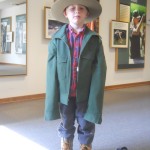
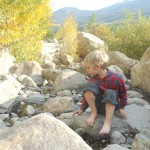

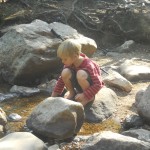





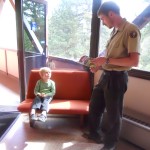
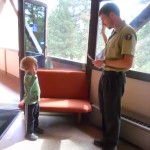


 Just a little bit about me -- I'm a coach for parents, visionary guide, insightful trainer, and powerful consultant.
Just a little bit about me -- I'm a coach for parents, visionary guide, insightful trainer, and powerful consultant.